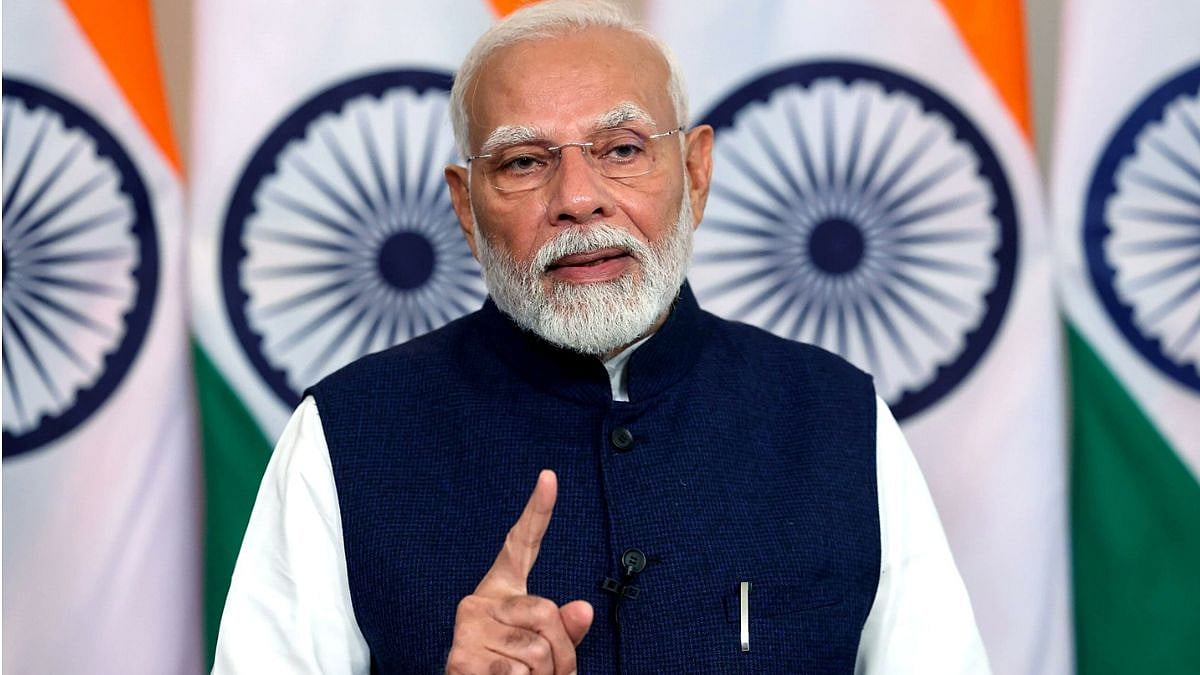The Supreme Court’s conclusion in the Shiv Sena defection case has put tremendous burden on the Maharashtra Legislative Assembly Speaker, as he has to take a decision on the status of the 16 Shiv Sena legislators who defied the party whip in the House.
What the Supreme Court has done is within the Constitutional framework. The current incumbent of the office of the Speaker of Maharashtra Legislative Assembly, Rahul Narwekar, himself a lawyer, had mentioned ahead of the Supreme Court judgment that only the Speaker of the House has the power to decide the fate of the 16 legislators, whose disqualification was sought by the undivided Shiv Sena.
Narwekar, who was a practicing advocate, is well-versed with the Constitutional provisions regarding his powers as the Speaker as well as the provisions of the Tenth Schedule of the Constitution, as regards defections by legislators.
Narwekar is a young politician and has a longer career in politics ahead of him. He has changed his political loyalties in the past. He was with the Shiv Sena and Nationalist Congress Party before joining the Bharatiya Janata Party, which made him the Speaker of the MaharashtraLegislative Assembly after the party formed a government with Eknath Shinde as the Chief Minister.
An ambitious politician, Narwekar may find it difficult to be judicious in his decision on the 16 legislators. Prima facie the legislators have to be disqualified in the light of the various observations made by the Supreme Court in the present judgment and in other similar cases.
The Speaker has to take into consideration who was the whip appointed by the Shiv Sena, before the split in the party and whether the legislators in question defied the whip. The rebel legislators of the Shiv Sena had appointed their own whip, but this appointment has been termed illegal by the Supreme Court.
Our parliamentary practice is based on the Westminster system, but there are some exceptions in our system. One such exception is that in the United Kingdom the Speaker quits the membership of his political party on election to the important office of the presiding officer. This is to ensure neutrality of the person holding the high office. In India, the Speakers of our legislative bodies continue to be members of the party and it is seen in the case of most of presiding officers, that they continue to hold their loyalties to their political party. Jagdeep Dhankar, the Vice-President of the country, who is the Chairperson of the Rajya Sabha, has been making political statements even after assuming office.
Obviously, the BJP and the Shiv Sena (Eknath Shinde) are keen on the continuance of the alliance government in Maharashtra and that depends on whether Shinde and his 15 legislator colleagues continue to be members of the House. In effect, the survival of the government is in the hands of the Speaker.
Narwekar has to decide what is important to him — his party or democratic norms and practices. If one is chosen, the other is sacrificed. In the interest of democracy in the country, he will have to ensure that he is judicious and fair in taking the decision on the 16 legislators, without favouring his party or its ally.
Narwekar, as well as all elected representatives in Maharashtra and the country, should read Edmund Burke’s speech on November 3, 1774 to the electors of Bristol. Burke said in his speech, “Parliament is not a congress of ambassadors from different and hostile interests; which interests each must maintain, as an agent and advocate, against other agents and advocates; but parliament is a deliberative assembly of one nation, with one interest, that of the whole; where, not local purposes, not local prejudices, ought to guide, but the general good, resulting from the general reason of the whole. You choose a member indeed; but when you have chosen him, he is not member of Bristol, but he is a member of parliament. If the local constituent should have an interest, or should form a hasty opinion, evidently opposite to the real good of the rest of the community, the member for that place ought to be as far, as any other, from any endeavour to give it effect…”
Narwekar has to remember that not just the nation but also the legal luminaries in the country will watch his moves, and any wrong decision on his part will be challenged in the Supreme Court. While the Speaker has some rights under the Tenth Schedule, the Supreme Court has observed in the past, “...there is, therefore, no immunity under Articles 122 and 212 from judicial scrutiny of the decision of the Speaker or Chairman exercising power under paragraph 6(1) of the Tenth Schedule.”
In an earlier case, the Supreme Court had mentioned in its ruling on November 12, 1991, “...an order passed by the Speaker/Chairman under paragraph 6 would be confined to jurisdictional errors only viz., Infirmities based on violation of constitutional mandate, malafides, non-compliance with rules of natural justice and perversity.”
It is an opportunity for Narwekar to be either a hero for the BJP, or a national hero by being impartial. Before he takes a decision on the 16 legislators, he must remember what is said of the Speaker in Erskine May: Parliamentary Practice, “The Speaker holds a high, important and ceremonial office. All questions of the wellbeing of the House are matters of Speaker's concern. The Speaker is said to be the very embodiment of propriety and impartiality. He performs wide-ranging functions, including the performance of important functions of a judicial character.”
The author is a senior journalist and media trainer. He tweets at @a_mokashi












